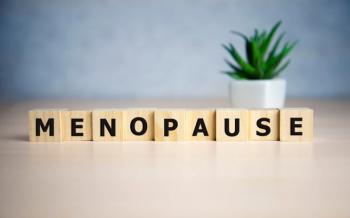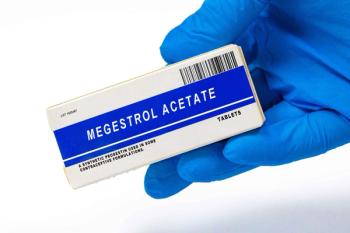
Illinois Working on Expanding Access to Contraception for Women
The Illinois legislature is considering pending legislation that would allow pharmacists to provide contraception directly to women.
When ‘the pill’ became legal almost 50 years ago, there was hope for many people that we were on our way to opening the doors of opportunity and autonomy for women. While there has been progress, efforts to restrict access to basic health care are ever more present. Given their accessibility and expertise, pharmacists are ideally positioned to provide patients with the necessary information and guidance regarding contraception. However, whether to allow a pharmacist to provide contraception is up to the states and while lawmakers wrestle with various issues women are left waiting.1
Illinois has been working to expand access to contraception for women. For instance, Illinois requires insurance to cover a 12-month supply of contraception and state law protects contraceptive coverage.2,3 In addition, Illinois has expanded Medicaid access to low-income adults.4 The Illinois legislature is also considering pending legislation led by State Representative Michelle Mussman and others that would allow pharmacists to provide contraception directly to women. All these steps and more would mitigate challenges some women in Illinois face.5,6
Contraception access is problematic for women living in rural and urban Illinois. Doctor visits to acquire a prescription for contraception are sometimes unnecessary but most often costly. In addition to the time off from work, the cost of transportation and cost of child-care can make contraception cost-prohibited for women with limited means. Allowing women to get their contraception directly from a pharmacist is even more important during the pandemic when people are seeking safe and convenient access points for health care.This is already a reality at more than 3000 pharmacies across the country.7
Further complicating the issue is the fact that more than 780,000 women in Illinois live in contraceptive deserts—counties in which there is not reasonable access to a health center offering the full range of contraceptive methods.2An already challenging contraceptive access landscape has been made more difficult by loss in Title X funding, as a result of the 2019 domestic gag rule. The rule, which is opposed by the American Medical Association, includes language aimed at limiting abortion as a legal medical option. According to Power to Decide, a nonprofit campaign to prevent unplanned pregnancy, one third of Illinois counties have lost some or all of their Title X resources.8,9
Contraception plays an important role in women’s lives and has broad public support. The majority of adults 76%),believe that birth control is a basic part of women’s health care. Further, 86% of adults support access to all birth control methods regardless of race, region, and political affiliation.10
Allowing pharmacists to provide contraception increases access to basic health care that is safe and allows women to plan for their futures. As R Street Institute, a right of center think thank has indicated, “… Illinois should consider implementing the pharmacy access model to allow pharmacists to prescribe birth control to patients seeking a provider. This model has already passed and is working in a number of states since 2015, and it is time for Illinois to follow suit.”11
Women in Illinois need access to vital preventative health care services, and pharmacists may soon play a larger role in providing them. Pharmacists can also support the efforts of those who are working out legislation technicalities with insurance companies and medical associations in order to make contraception affordable and accessible in Illinois.
REFERENCES
- Beyond the Beltway. Power to Decide. Published January 1, 2021. Accessed February 9, 2021.
https://powertodecide.org/sites/default/files/2021-01/Pharmacist%20Prescribing.pdf - Contraceptive Access in Illinois. Power to Decide. Published March 16, 2020. Accessed February 9, 2021.
https://powertodecide.org/sites/default/files/2020-03/State%20Factsheet_Illinois.pdf - Protecting Contraceptive Coverage. Power to Decide. Accessed February 9, 2021.
https://powertodecide.org/what-we-do/access/state-policy/rh-access-policies/protecting-coverage - Gov. Pritzker signs Medicaid expansion, increased transparency in Illinois. KFVS12; August 5, 2019.
https://www.kfvs12.com/2019/08/05/gov-pritzker-signs-medicaid-expansion-increased-transparency-illinois/ . Accessed February 9, 2021. - Pharmacist Prescribing of Contraception.Power to Decide. Accessed February 9, 2021.
https://powertodecide.org/what-we-do/access/state-policy/rh-access-policies/pharmacist-prescribing - Bill Status of HB0135. Illinois General Assembly; Updated February 23, 2021. Accessed March 8, 2021.
https://ilga.gov/legislation/BillStatus.asp?GA=102&SessionID=110&DocTypeID=HB&DocNum=135 - There's a new birth control doctor in your neighborhood. Birth Control Pharmacies. Accessed February 9, 2021.
https://www.birthcontrolpharmacies.com/ - Impacts of The Domestic Gag Rule. Power to Decide. Accessed February 9, 2021.
https://powertodecide.org/sites/default/files/2020-10/Impacts%20of%20the%20Domestic%20Gag%20Rule_Factsheet.pdf - Contraceptive Access in Illinois. Power to Decide; March 16,2020.
https://powertodecide.org/what-we-do/information/resource-library/contraceptive-access-illinois . Accessed February 9, 2021. - Survey Says: #ThxBirthControl (November 2019). Power to Decide; November 2019.
https://powertodecide.org/what-we-do/information/resource-library/survey-says-thxbirthcontrol-november-2019 . Accessed February 9, 2021.- Pharmacy Access to Contraception in Illinois. RStreet; April 2019.
https://www.rstreet.org/wp-content/uploads/2019/04/Final-Illinois-Pharmacy-Access-R-Sheet-2019.pdf . Accessed February 9, 2021.
Newsletter
Stay informed on drug updates, treatment guidelines, and pharmacy practice trends—subscribe to Pharmacy Times for weekly clinical insights.


























